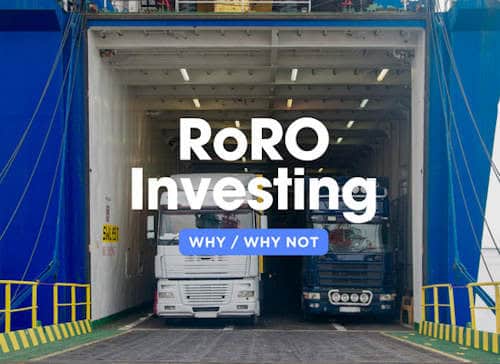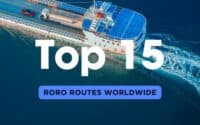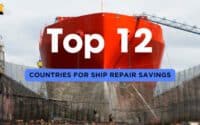The Benefits of Investing in a RoRo Ship in Today’s Economy: The Whys and Why Nots

In an era marked by increasing globalization and evolving logistics needs, Roll-on/Roll-off (RoRo) ships have become a vital component of the maritime industry. These specialized vessels, designed to transport wheeled cargo such as cars, trucks, and heavy machinery, offer unique advantages that make them an attractive investment. However, like any major financial decision, there are both benefits and potential challenges to consider.
Key Benefits of Investing in a RoRo Ship:
- Versatility in Cargo Transport: Adaptable to a wide range of vehicles and oversized cargo.
- Efficiency and Speed: Faster loading and unloading times, reducing port stays.
- Growing Market Demand: Increasing global trade and vehicle movement boost demand for RoRo services.
- Environmental Advances: Modern ships incorporate eco-friendly technologies, reducing environmental impact.
Potential Drawbacks to Consider:
- High Initial Investment: Significant upfront costs for acquisition and outfitting.
- Market Fluctuations: Demand can vary based on economic conditions and automotive industry trends.
- Operational Challenges: Requires specialized crew and maintenance, potentially increasing operating costs.
| ShipUniverse: Pros and Cons of Investing in a RoRo Ship | |||
|---|---|---|---|
| Pros | Cons | Additional Considerations | Market Trends |
| Versatility in transporting various types of vehicles and oversized cargo. | High initial investment and potential for high maintenance costs. | Availability of specialized crew and maintenance facilities. | Growing demand in automotive and heavy machinery transport sectors. |
| Efficiency in loading and unloading, reducing port turnaround times. | Market fluctuations can impact demand and profitability. | Long-term market stability and economic downturns. | Technological advancements improving fuel efficiency and reducing emissions. |
| Potential for diversified revenue streams by catering to different market segments. | Operational challenges including the need for specialized handling equipment. | Competition in the RoRo market and potential barriers to entry. | Shifts in global trade policies and regulations affecting shipping routes and costs. |
| Modern RoRo ships are equipped with eco-friendly technologies, attracting environmentally conscious clients. | Potential regulatory changes that could impact operational costs. | Adaptability to new regulations and technological upgrades. | Increasing focus on sustainability in the maritime industry. |
| Ability to transport high-value cargo securely, such as luxury vehicles and military equipment. | Insurance costs can be high for high-value cargo. | Assessing the insurance requirements and costs for specific cargo types. | Rising global trade of high-value goods, increasing demand for secure transport options. |
| RoRo ships often have quicker turnaround times compared to other cargo ships. | Limited to ports equipped with RoRo facilities. | Consideration of the availability and development of RoRo-capable ports. | Investment in port infrastructure to support RoRo operations is increasing. |
| Opportunities for partnerships with automotive and machinery manufacturers. | Dependence on specific industries like automotive can be risky. | Diversifying cargo types to mitigate industry-specific risks. | Global automotive industry trends, including shifts to electric vehicles, influencing transport needs. |
| Potential for higher returns on investment due to specialized services. | Requires substantial upfront capital investment. | Evaluating financing options and potential ROI scenarios. | Increasing investor interest in niche maritime sectors, including RoRo shipping. |
| RoRo ships are adaptable to various trade routes and cargo needs. | Potential delays and logistical issues if infrastructure is lacking. | Analyzing port and route infrastructure adequacy. | Expansion of RoRo routes in emerging markets. |
| Increasing automation in RoRo handling can reduce long-term labor costs. | Initial cost of automation technology can be high. | Considering the cost-benefit analysis of automation investments. | Technological advancements driving increased automation in the maritime industry. |
Investing in a RoRo ship presents a unique set of advantages and challenges that are closely tied to the current economic landscape. The versatility, efficiency, and growing market demand for RoRo services make these vessels an attractive option for those looking to diversify their shipping portfolio. However, potential investors must also consider the high initial costs, operational challenges, and market fluctuations that can impact profitability. By carefully weighing the pros and cons and staying informed about industry trends, investors can make well-informed decisions that align with their long-term strategic goals. As the maritime industry continues to evolve, RoRo ships offer promising opportunities for growth and innovation, provided that the investments are managed with foresight and careful planning.

Do you have a Maritime Product or Service that may be of interest to Shipowners? Tell us about it here!
Do you have feedback or insights? Please reach out to editor @ shipuniverse.com



